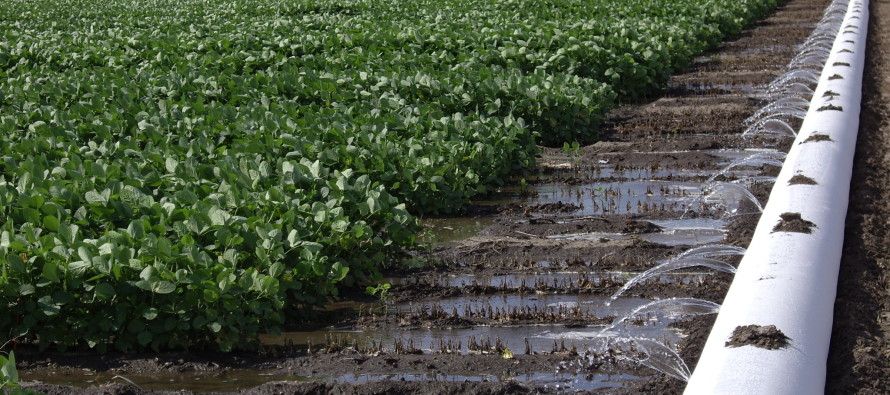Pipe Planner: The Foundation Water Management Practice for Furrow Irrigated Systems

Related Articles
- 2010 Row Crop Short Course Video Links 0
- Key Corn Verification Findings 1
- What to Expect from Later than Normal Corn Planting 2
Latest Tweets
To address the declining Mississippi River Valley Alluvial aquifer, Mississippi State University developed the Row-Crop Irrigation Science and Extension Research (RISER) program. RISER’s goal is to develop a science based approach for evaluating Irrigation Water Management (IWM) practices in the Mississippi Delta and to assist producers in the adoption of IWM practices that reduce water use, maintain yield potential and improve profitability.
The foundation of the RISER program in furrow irrigated environments is computerized hole selection. PHAUCET was the flagship computerized hole selection program developed by the Natural Resource Conservation Service, but this program has been supplanted by Delta Plastic’s Pipe Planner.  Pipe Planner is free to the public, but producers need to contact their local Delta Plastic’s supplier for access to the program.
Pipe Planner is free to the public, but producers need to contact their local Delta Plastic’s supplier for access to the program.
Why is Pipe Planner such an effective IWM practice in furrow irrigated environments? Pipe Planner uses friction loss, poly-tubing elevation, well flow rates at the riser, field shape, and pressure changes in the poly-tubing associated with the interaction among these parameters to calculate hole sizes in layflat poly-tubing to ensure uniform application of water across the irrigation set, irregardless of field shape.
We recently assisted a producer in a Pipe Planner design for a 349 acre field. Prior to our assistance, the producer used three wells, one hole size, 36 different sets (using plugs) requiring 12 to 14 days to irrigate. After converting to Pipe Planner, the producers could irrigate the 349 acre block in 6-7 days and plugs were no longer required. The labor savings alone has paid for the additional poly pipe, and increased yields are expected due to more timely irrigation.
Our experience with Pipe Planner on square or regular shaped fields has produced the results presented to the right. Water savings of 20-25% can be expected in most situations. If the average field needs from 15 to 18 inches of irrigation water to reach yield potential, at $3 per acre inch, a cost savings of $12 to $14 can be expected.
We have experienced much greater savings from irregular shaped fields. The results from our multi-year studies are to  the right. Water savings , fuel, and time savings up to 50% can be expected in fields that are extremely irregular in shape. Equal savings in time and fuel can be expected. In our studies, $20 dollars per acre savings could be common.
the right. Water savings , fuel, and time savings up to 50% can be expected in fields that are extremely irregular in shape. Equal savings in time and fuel can be expected. In our studies, $20 dollars per acre savings could be common.
If you haven’t tried Pipe Planner, we encourage you to investigate implementation of Pipe Planner on your farm. Your local poly tube distributor is prepared to assist you in creating an account to access the Pipe Planner program. We here at MSU are available to train and assist you in utilizing Pipe Planner. Dr. Krutz and staff can be reached at 6625888974.





Let me tell You a sad story ! There are no comments yet, but You can be first one to comment this article.
Write a comment